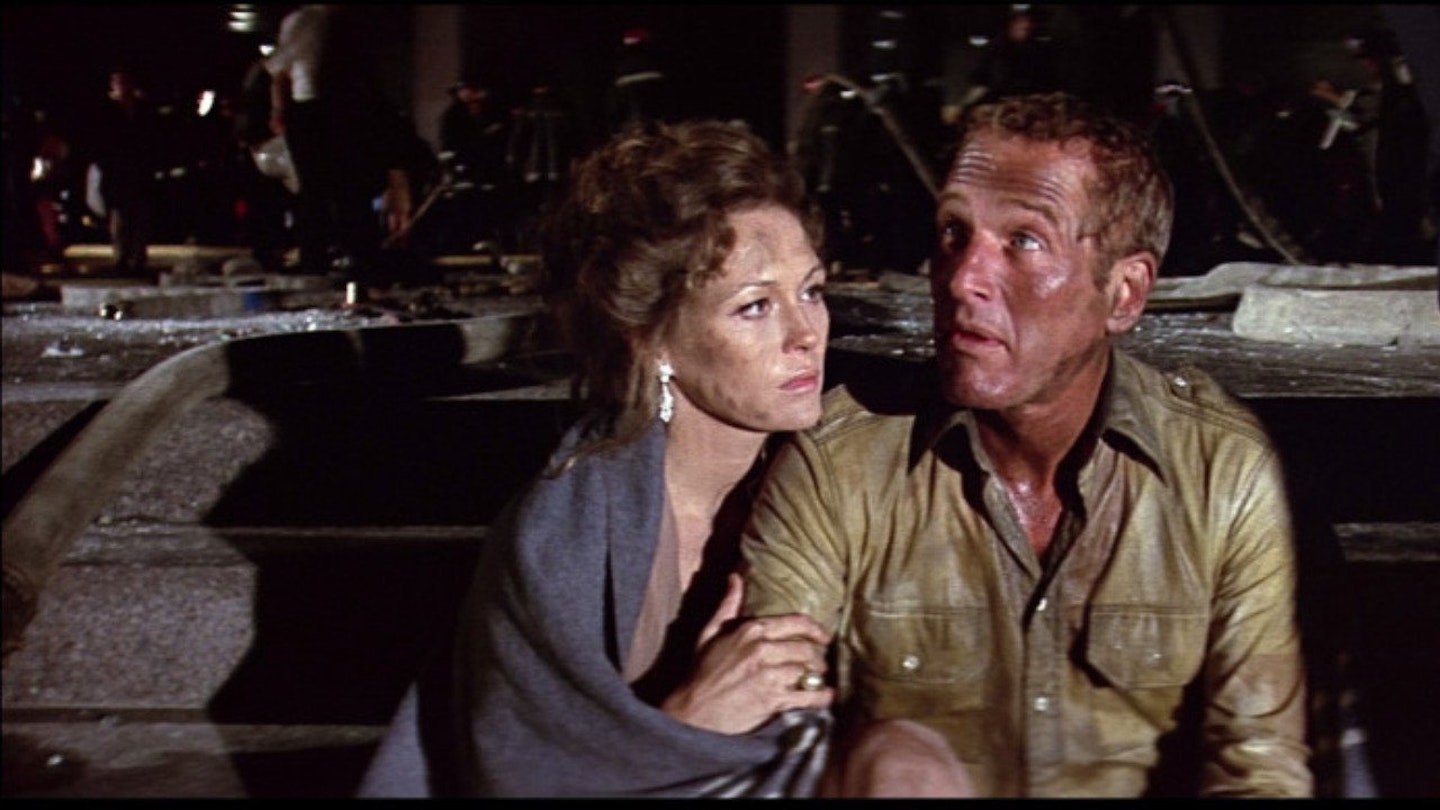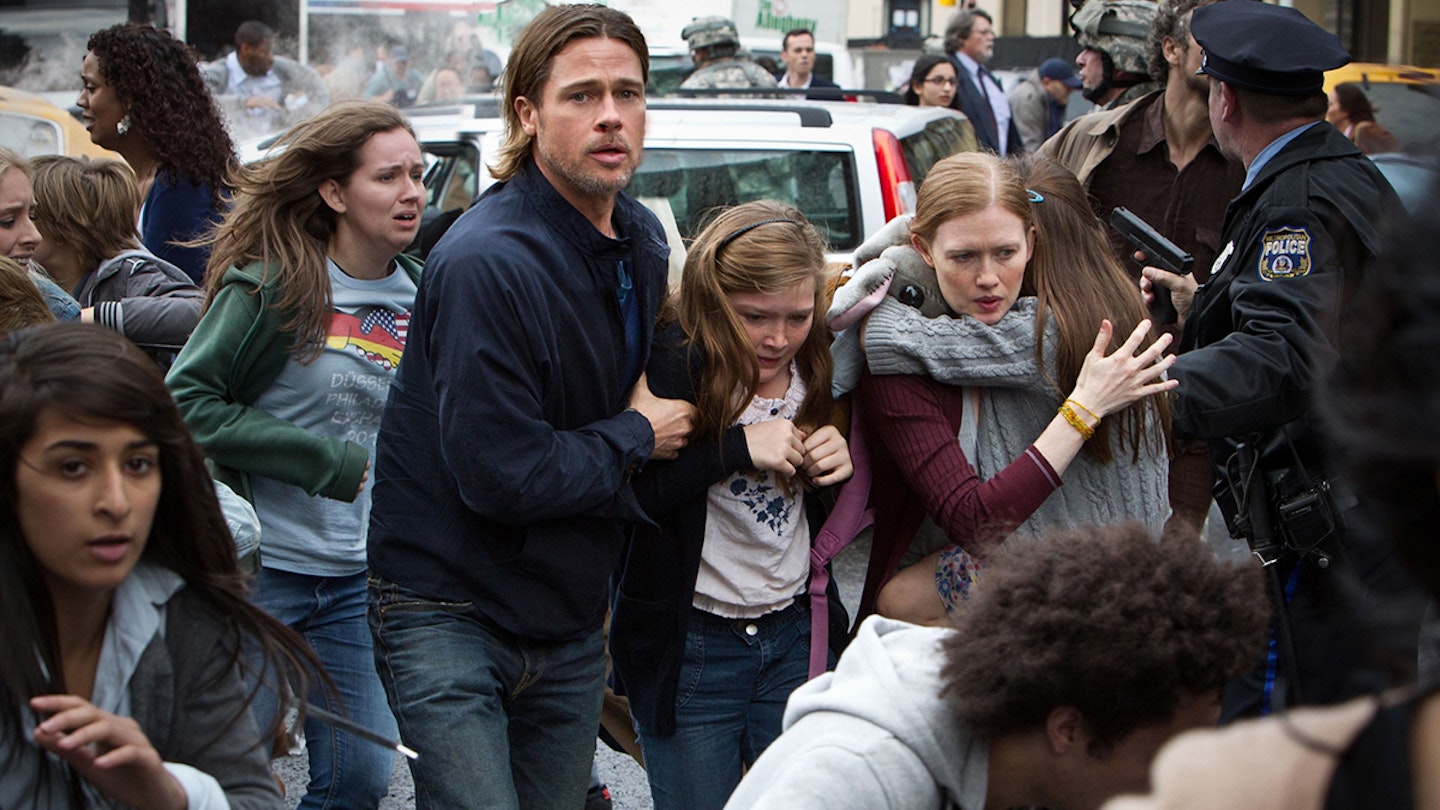"It's as though General Motors and Chrysler combined their respective brainpower and manpower and went Dutch treat on the bill to produce a new model automobile."
Thus ran the statement issued by Warner Bros and 20th Century Fox in October 1973, announcing their historic union for one picture only. After the success of The Poseidon Adventure, Warner Bros had aced Fox in a $400,000 bid for rights to The Tower, a novel about a burning skyscraper. Fox paid $300,000 for The Glass Inferno, a similar fiery yarn. Producer Irwin Allen suggested a collaboration instead of a scrap, and the two behemoths split the costs down the middle, including the building of 57 sets, all of which would be burned down in the process. It paid off, of course. The film grossed $100 million worldwide (a lot of money in those days).
A few years ago. Towering Inferno was a museum piece: spectacular, successful, rubbish. But it stands today — after Daylight, Volcano, Titanic, Hard Rain — as the giant of a reassessed genre. Poseidon will always be theoriginal and best, but there remains something irresistible about this film's expensive swagger, from the helicopter shot into San Francisco onwards.
Today's disaster movies today tend not to attract Hollywood's superleague; in the good old days, only the biggest names would do — McQueen and Newman (the Cruise and Hanks of the early 70s) as inscrutable fire chief and dependable architect. Holden, playing the mogul who built the tower, took a lower billing, but not without complaint ("It's a lousy script," he complained to his agent).
There is something quaint about the fact that the actors did many of their own stunts (in the climactic flooding of the Promenade Room, which extinguishes the blaze, you can see the look of real terror in Fred Astaire's face), but McQueen takes the crown. He actually fought a real $80 million inferno during fire department research for the role, and was more concerned on set about his helmet ("I look like an idiot!" he complained). If the dialogue is cheesy ("Is it bad?" "It's a fire — all fires are bad"), it's spoken in the face of some breathtaking set pieces. Backdraft's homage in 1991 gave fire a malevolent life of its own; here, it simply looks out of control. A rare 70s film that doesn't look like a TV movie.
And O.J. Simpson's in it (but he didn't start it).

